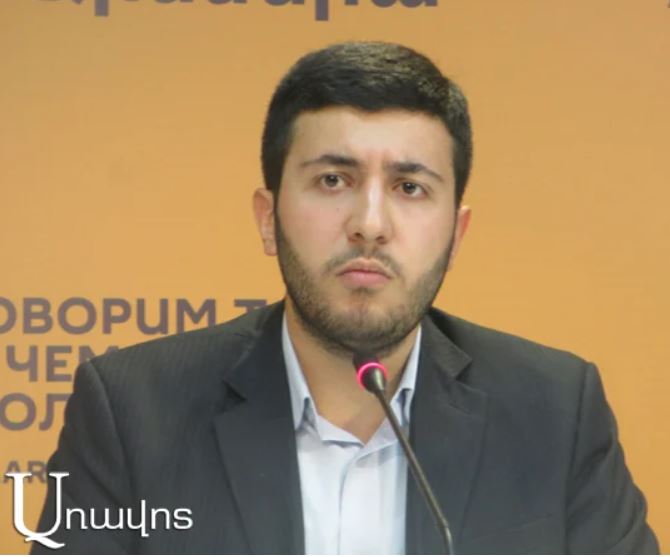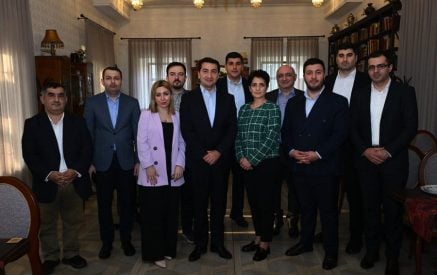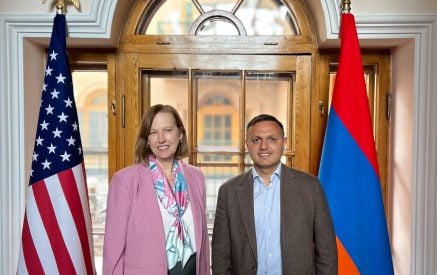Prior to the announcement of the Constitutional Court’s ruling, it was clear because there was no serious power center that would have enough desire and opportunities to extort a decision from the Constitutional Court other than the existing one. This is the opinion of political scientist Areg Kochinyan about the Constitutional Court decision. The Constitutional Court decided to uphold the CEC’s ruling on the June 20 snap elections.
The election results, or specifically the decision of the Central Electoral Commission, were challenged in court by four political forces: the Armenia and I Have Honor alliances and the Zartonk and Armenian Homeland parties. Davit Harutyunyan, the representative of I Have Honor in the Constitutional Court, told journalists that this decision was not a surprise for them. “The Constitutional Court’s decision is a legal one, but made with political influence,” Davit Harutyunyan added.
The Armenia alliance’s representative Aram Vardevanyan also said that the Constitutional Court’s decision was expected. “The political persecution toward the Constitutional Court was clear. Every one of the nine judges thought they would get thrown on the asphalt, their fingers would get cut off, and there would be a vendetta if they went against the government… in these conditions, the Constitutional Court did not have courage, and it did not invalidate the results of the elections. But this does not change reality. This decision was a political order.”
Read also
In a conversation with Aravot Daily, political scientist Areg Kochinyan said, “First of all, what was the purpose of those two forces applying to the Constitutional Court? Two goals could work. One option was the intention of playing the role of the strong ‘soldier’ to the end, that he fights to the end, tries to fight, and so on. From the beginning, those forces did not even hope to achieve any success in the Constitutional Court because everything was very obvious from the legal point of view. The other option was the hope that certain power centers (meaning the Kremlin – N.B.) outside Armenia would disagree with the foreign policy of the acting Prime Minister Nikol Pashinyan, or rather, would demand certain concessions, which Pashinyan will not make, and extort those concessions. “Either they will blackmail Pashinyan with the possibility of influencing the Constitutional Court, or they will just blow up the domestic political field of Armenia by extorting a decision from the Constitutional Court.”
According to Kochinyan, the calculation was either one or the other, or both at the same time. In his opinion, the solution had two options: either Nikol Pashinyan made some concessions in the foreign policy sphere, or the geopolitical position changed, especially with the statements of the EU and the US and assuming certain financial obligations. “In other words, a certain geopolitical balance was finally formed in the region, if we don’t say balance yet, that the US and the EU began to show a certain presence in the region, which in turn created a certain opportunity for Pashinyan to maneuver. Perhaps seeing this big picture, we also understand that either the opportunities of certain power centers decreased to get the decision they liked from the Constitutional Court or the need for it already arose, because even if the internal political field exploded with this geopolitical position Pashinyan would have the opportunity to retain power.
Thus, we can say that this decision of the Constitutional Court was clear because there was no serious power center that would have enough desire and opportunities to extort a decision from the Constitutional Court other than the existing one, and the existing one is the only adequate legal decision. It was because everyone who followed these electoral processes clearly saw that there was no process of any serious violations or influencing the elections.”
Nelly Babayan


























































